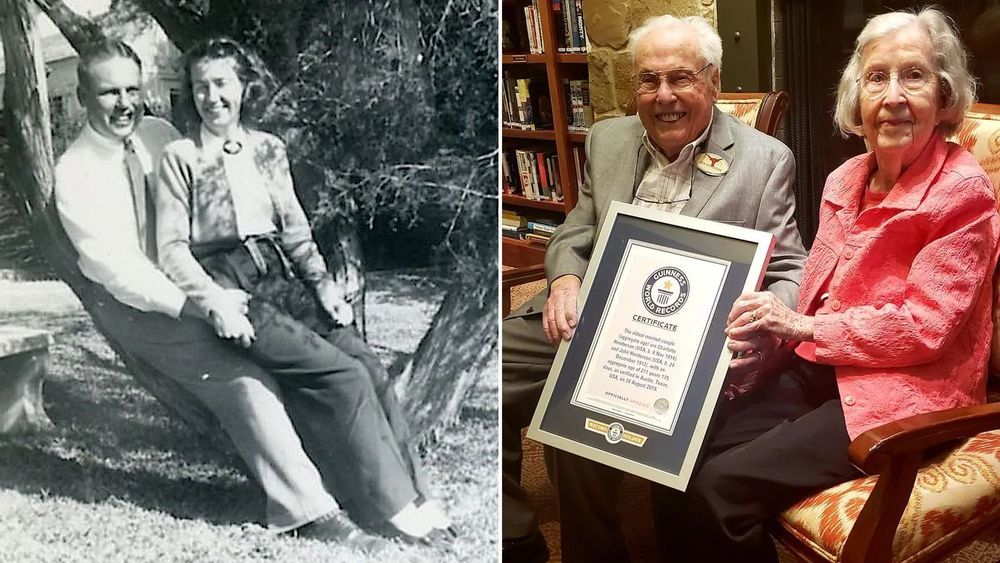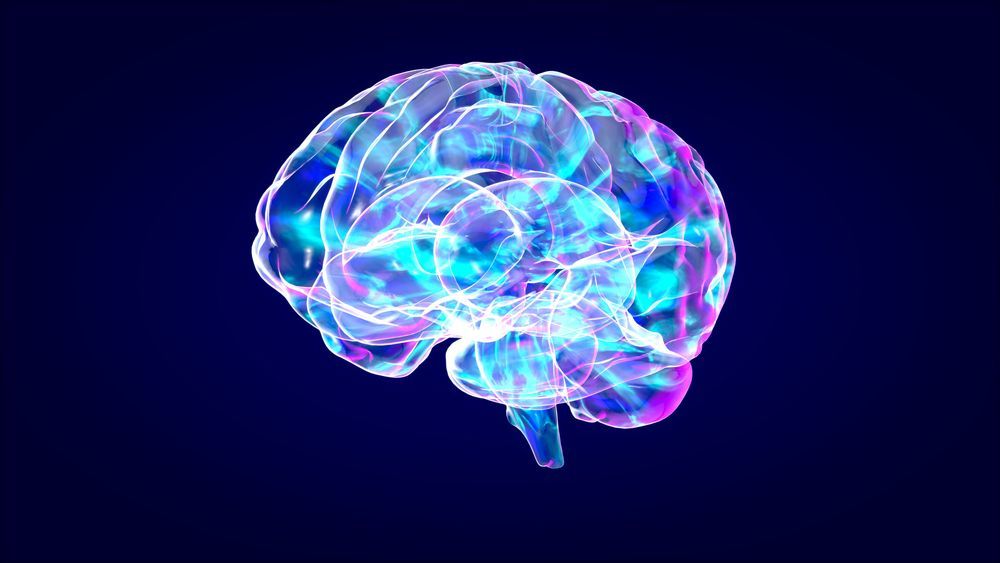John and Charlotte Henderson, who met at the University of Texas Austin in 1934 and wed five years later, have been recognized by Guinness World Records for the longevity of their love.



Scientists from the Salk Institute for Biological Studies are homing in on exactly how two new experimental Alzheimer’s drugs could be generating the anti-aging effects seen in early animal studies. The discovery of a unique metabolic pathway, associated with both general aging and the onset of dementia, offers researchers novel directions for future anti-aging studies.
Salk researchers have been developing two experimental drugs for several years with a view on improving cognition and slowing the neurodegenerative decline associated with Alzheimer’s disease. Called CMS121 and J147, the drugs were effective in slowing the progression of Alzheimer’s in initial animal tests. However, the compounds also seemed to demonstrate signs of slowing down general markers of brain aging.
As the two drugs move toward human trials, the researchers have been working to uncover exactly what molecular mechanisms are at play to explain how they work. One potential mechanism was uncovered in early 2018 but that was only part of the story. Now, the Salk team has uncovered an exciting new molecular pathway, influenced by the two drugs, that could explain how the compounds slow down brain aging.
Can we live forever?


Wow, the shit flies are flying out of the trash cans of Earth… I myself do not desire the thought of man and machine becoming one literally bolted together. But only as Singularity has been now for centuries.
For centuries every technological marvel of the era man became the brain of the covered wagon the bicycle the car the train the Plane now Rocket ships.
Each machine man had to become one with it for it to work. Mans brain became machine like-calculating to operate these miracles of each generation.
NOW Suddenly on Google of all places these nay sayers with totally bogus reasoning are loudly speaking against Transhumanism and even loudly against Immortality, of which the likes of Nikola Tesla literally forcast-Prophesy…
So what say Ye about these new Johnny get your Gun and jump on what I now say is our collective vehicle and let us call our vehicle the Band Wagon.
They, so many now are joining the wave started by Who??? Many, such as the De Grey, Gennady Stolyarov, Ray Kurzweil, Jim Strole and Bernadeane and Ilia Stambler and the list could go on.
Now many garner attention by saying the same forecast the same words of Ray or De Grey then they go on tour.

Plant regeneration at the cellular and tissue level is a unique process. Similar to animals, the stem cells in plants have properties that help stimulate and regenerate plants after injury. The unique properties of plant stem cells have been a recent area of interest and focus both in developing new cosmetics and studying how these extracts/phytohormones will influence animal skin. This special report focuses on the current evidence-based trends in plant stem cell-based cosmetics and sheds light on the challenges that we need to overcome in order to see meaningful changes in human skin using topical cosmetics derived from plant stem cells.
Keywords: : aging skin, antiaging, Ayurveda, cosmetics, epidermal stem cells, herbs, plant stem cells, regeneration.
Plants are equipped with a robust mechanism for regeneration of their tissues under stress. Significant efforts have been put into understanding this mechanism in the expanding field of plant biotechnology [1]. In animals, tissue regeneration occurs following a wound stimulus, resulting in the initiation of organ repair. By contrast, the regenerative efforts made by the plants are not only for tissue repair from damage, but also for the development of a new plant [2]. In other words, cutting the branch of a tree also results in a new bud/branch growth. Can we use this unique property in plants for improving tissue regeneration in animals? “Eat an apple a day…But can it keep aging away?” is thus the question. This report focuses on current applications of plant stem cell-based cosmetics and current research into effects of plant stem cells in human skin.

A new publication by an international team of scientists has proposed a new healthcare framework to help older people stay healthier for longer by improving the development of therapies that target age-related diseases.
Society is aging, and we need to change healthcare for the better
This new publication urges World Health Organization (WHO), governments, and the medical science community to work together and develop classifications and staging systems using a new framework as a basis for diagnosing and treating age-related diseases.

